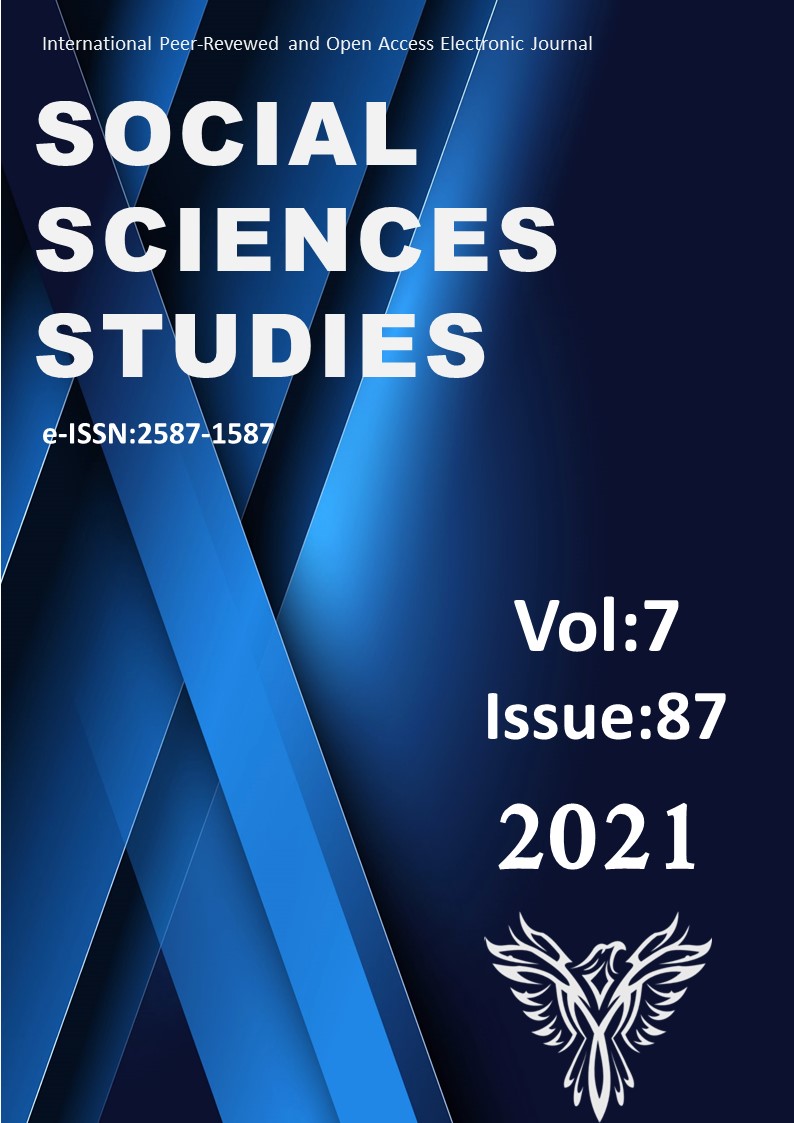Author :
Abstract
İlişkisel nitelikteki bu çalışma, değişim yönetiminde örgütsel güvenin oynadığı rolü incelenmek amacıyla sağlık hizmeti sunan bir genel müdürlüğün çalışanlarıyla yürütülmüştür. Araştırma, gerekli etik komisyon izni alındıktan sonra evreninin tamamına ulaşılmaya çalışılmış ve araştırmaya katılmayı kabul eden 47 çalışan ile gerçekleştirilmiştir. Veriler, çalışanların yaş, cinsiyet, eğitim, medeni durum, çalışma süresi ve iş yerindeki pozisyonuna ilişkin sosyo-demografik özelliklerini içeren 6 sorudan oluşan kişisel bilgi formu ve Değişim Yönetimi Ölçeği ve Örgütsel Güven Ölçeği kullanılarak toplanmıştır. Veriler, betimsel istatistikler ve ölçekteki ifadelerin güvenirliğine ilişkin Cronbach’s Alpha (α), ölçekteki ifadelere verilen cevapların normal dağılıma uygunluğuna yönelik Skewness ve Kurtosis değerleriyle, değişkenler arası ilişkiyi belirlemeye yönelik Korelasyon ve Regresyon analizleriyle değerlendirilmiştir. Çalışma sonuçlarına göre; çalışanların iş yerindeki pozisyonu ile ölçek puan ortalaması anlamlı derecede farklılaşmaktadır (F:3,822, p<0,05). Çalışanların değişim algıları ile örgütsel güven arasında istatiksel olarak anlamlı ve pozitif bir ilişki olduğu saptanmıştır (r=0,741; p<0.05). Ayrıca, örgütsel güvenin alt boyutlarından olan yetkilendirme ve olumlu geribildirimin değişime bakış açısını pozitif yönde ve anlamlı derecede yordamaktadır (p<0,05).
Keywords
Abstract
This relational study was conducted with the employees of a general directorate of health services to examine the role of organizational trust in change management. After obtaining the necessary ethics commission permission, the whole population of the research was tried to be reached and it was carried out with 47 employees who agreed to participate in the research. The data were collected using a personal information form consisting of 6 questions, including the socio-demographic characteristics of the employees regarding age, gender, education, marital status, working time and position at the workplace, and the Change Management Scale and Organizational Trust Scale. The data were evaluated with descriptive statistics and Cronbach's Alpha (α) for the reliability of the statements in the scale, Skewness and Kurtosis values for the conformity of the answers given to the statements in the scale to normal distribution, and Correlation and Regression analyzes to determine the relationship between the variables. According to the results of the study; the position of the employees at the workplace and the mean score of the scale differ significantly (F:3,822, p<0.05). It was determined that there is a statistically significant and positive relationship between employees' perceptions of change and organizational trust (r=0.741; p<0.05). In addition, empowerment and positive feedback, which are sub-dimensions of organizational trust, positively and significantly predict the perspective of change (p<0.05).





